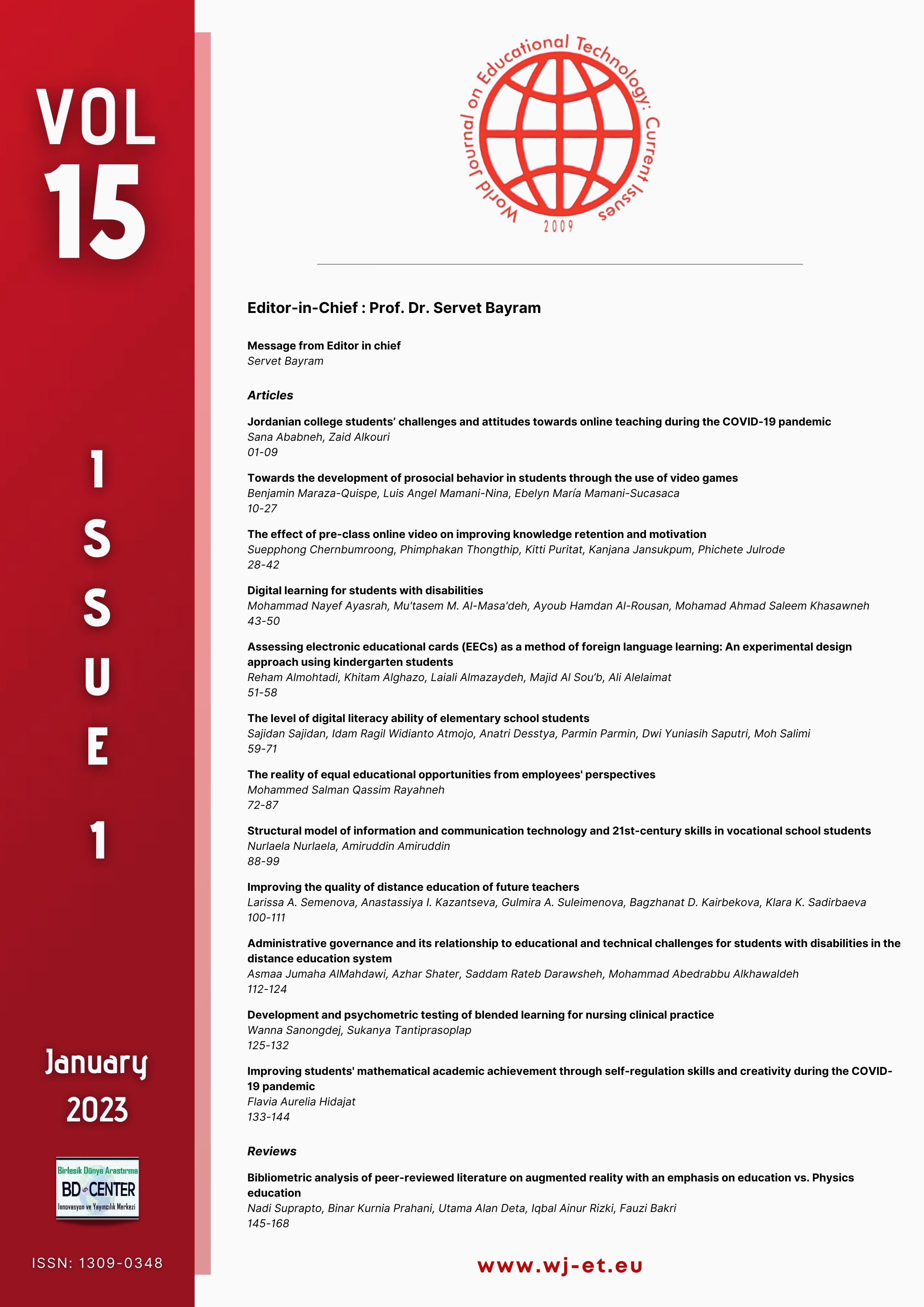The effect of pre-class online video on improving knowledge retention and motivation
The effect of pre-class online video on improving knowledge retention and motivation
Author(s): Suepphong Chernbumroong, Phimphakan Thongthip, Kitti Puritat, Kanjana Jansukpum, Phichete JulrodeSubject(s): Media studies, Higher Education , Educational Psychology, Sociology of Education
Published by: Birlesik Dunya Yenilik Arastirma ve Yayincilik Merkezi
Keywords: Undergraduate students; news literacy; knowledge retention; motivation; pre-class video;
Summary/Abstract: Since humankind entered the computerised period, data and the amount of information available through digital sources have drastically increased, and people nowadays can also generate and distribute information. As a result of these changes, knowledge acquisition was characterised by a rapid increase in information. However, the retention of such information or knowledge can be challenging. To understand how it happened with the undergraduate students, we developed a 4-minute digital pre-class video designed specifically for undergraduate students and assessed its capacity to verify news based on the method of the International Federation of Library Associations and Institutions, which consists of eight evaluation criteria and key points to consider. To examine the video's efficacy, we used a randomised controlled design among the control and experiment groups, with an in-class session based on both a pre-class video and PowerPoint materials for the experiment group and an in-class session using PowerPoint materials only for the control group. The instructional materials motivation survey questionnaire and the fake news literacy test were utilised to examine motivation, knowledge acquisition and knowledge retention. The results showed that while students of both groups had similar performances as regards knowledge acquisition, they nonetheless showed a considerable difference in retention and motivation of knowledge from the perspective of attention and relevance. These results show a huge potential for using pre-class video and appropriate and effective content to combat false information in Thailand. Nevertheless, the research is subject to limitations. The study was only carried out at Chiang Mai University. More research experiments at other universities are required.
Journal: World Journal on Educational Technology: Current Issues
- Issue Year: 15/2023
- Issue No: 1
- Page Range: 28-42
- Page Count: 15
- Language: English

